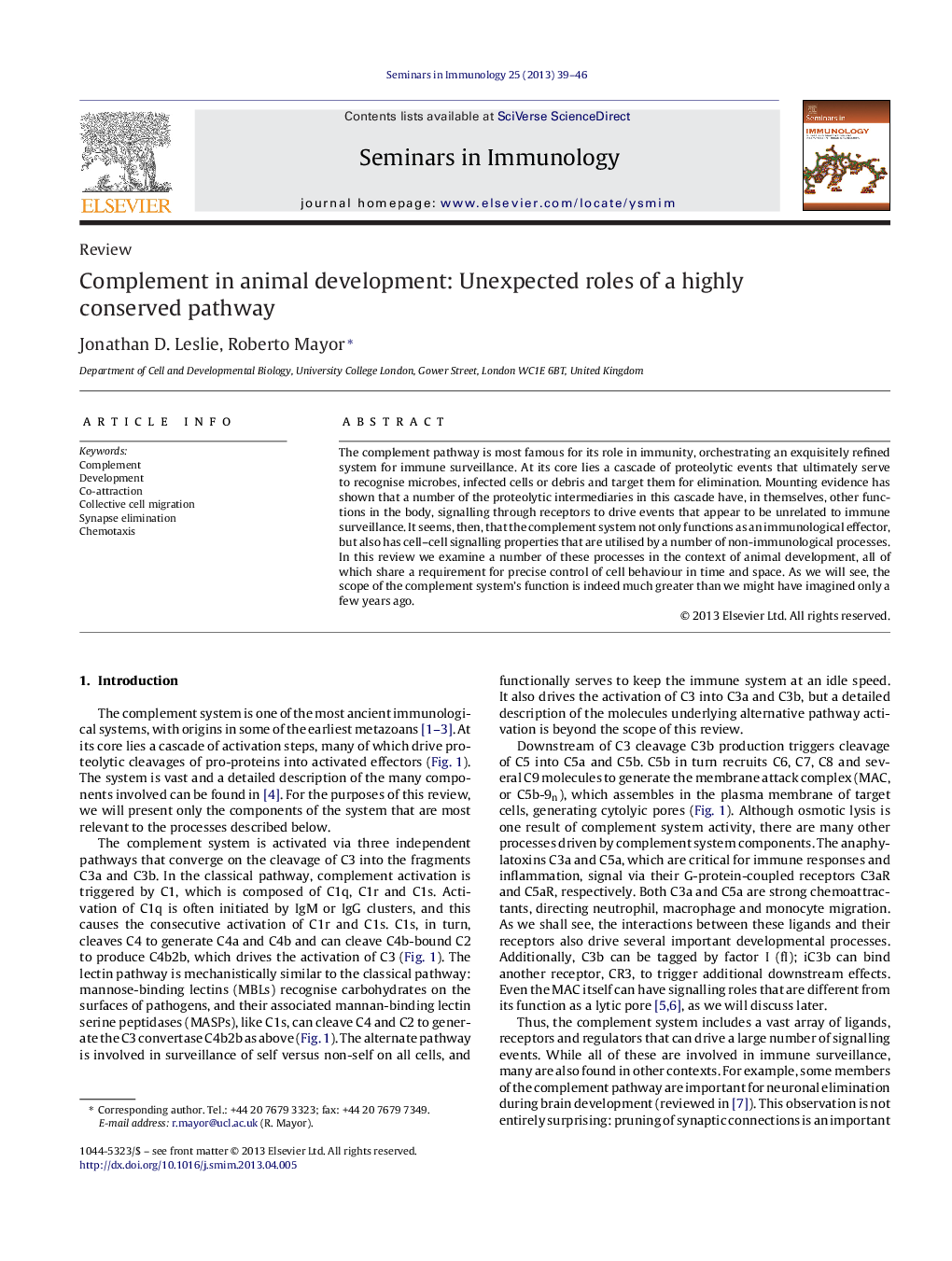| Article ID | Journal | Published Year | Pages | File Type |
|---|---|---|---|---|
| 6125930 | Seminars in Immunology | 2013 | 8 Pages |
Abstract
The complement pathway is most famous for its role in immunity, orchestrating an exquisitely refined system for immune surveillance. At its core lies a cascade of proteolytic events that ultimately serve to recognise microbes, infected cells or debris and target them for elimination. Mounting evidence has shown that a number of the proteolytic intermediaries in this cascade have, in themselves, other functions in the body, signalling through receptors to drive events that appear to be unrelated to immune surveillance. It seems, then, that the complement system not only functions as an immunological effector, but also has cell-cell signalling properties that are utilised by a number of non-immunological processes. In this review we examine a number of these processes in the context of animal development, all of which share a requirement for precise control of cell behaviour in time and space. As we will see, the scope of the complement system's function is indeed much greater than we might have imagined only a few years ago.
Related Topics
Life Sciences
Immunology and Microbiology
Immunology
Authors
Jonathan D. Leslie, Roberto Mayor,
